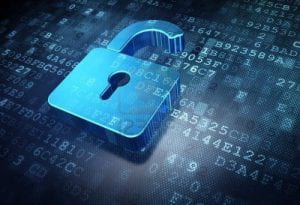
Around 90% of cyber incidents are estimated to begin with a phishing attack. There are over 3 billion emails sent every day by threat actors. Here are some basic cybersecurity tips to help keep UMS data, and in some cases your personal data, safer:
Use strong unique passwords
An example of a strong but easy-to-remember password would be a phrase, such as MorningCoffee1st&BlueSkies!. This password is easier to remember than something like X%#hf4(pkL!, but just as secure. Create a unique password for each account and avoid reusing passwords. Managing an ever-growing list of passwords can become overwhelming, especially since they all must be unique for each account. Look into using a password management app for your personal accounts to help with this task, but be mindful that if you feel the need to write them down, store them in a locked drawer when not in use. Do not leave passwords out in the open for anyone to see.
Use multi-factor authentication (MFA).
MFA is available to all UMS staff and faculty. Most financial institutions also have implemented MFA to protect your personal financial data. For information on how to enroll in MFA, please navigate to the UMS Knowledge Base and search “Multi-Factor Authentication (MFA) – How do I enroll?”
Email Accounts
Try to use your UMS account for UMS business only. If you do not already have a personal account, create and use one for your personal use as much as possible.
Connect with Care: “When in doubt, throw it out.”
Links in emails are a very common way for threat actors to compromise your account or computer. Be cautious of emails that implore you to act immediately and/or offer you something that sounds too good to be true. If it looks suspicious or you have any doubts, forward the suspicious email to phish@maine.edu, then mark the email as spam or delete it.
Stay informed.
The UMS Infosec team tracks current phishing scams that have targeted a large group of UMS staff and faculty. Those can be found by going to your Campus Portal page and clicking on the IT icon in the launchpad. This will bring you to the Information Technology Support page in TDX. In the search bar on the upper right corner enter Common Types of Phishing, this will bring up the article with the most common types and current phishing attempts we are seeing.
Logoff/Lock
Always remember to either lock your computer or log off entirely when you are done for the day or leaving the area.
The Information Security Office has new information resources, including a page on remote work and COVID-19 cybersecurity available from the Information Security portal.
Questions? Comments? Contact UMS Information Security at infosecurity@maine.edu.
(Content for this page was provided by Lynne Woods, Information Security Analyst II, UMS Information Security Office)